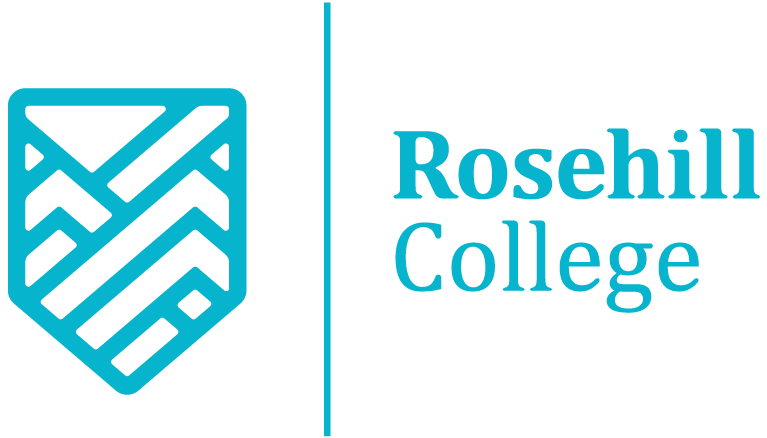General English
Course Duration
From 1 week to 48 Weeks
Location
Rosehill Campus, Sydney
intake dates
Start your study program any Monday of the year
CRICOS CODE 0101986
- General English courses prepare students with communication skills by developing listening, speaking, reading, and writing.
- When students arrive at Rosehill College, they are given a Placement Skills Assessment Test and an interview to determine their English proficiency and are then placed in a class best suited to their English level and study plans.
- General Intensive English is designed to give students the opportunity for the rapid progress of the English language.
- There are 20 hours a week English lessons including electives taught from Elementary, Pre-Intermediate, Intermediate, Upper-Intermediate.
- Rosehill College’s goal is to improve the level of student’s understanding of a foreign language and to get the students to use the language in an effective manner to improve communication in business. This course teaches basic vocabulary, simple verb tenses, common phrases, conventional techniques, pronunciation tips, the phonetic and English alphabet and coincidence in your language.
- Please refer to the contents for each level if you plan to undertake General English
Elementary
You will learn basic vocabulary, simple verb tenses, common phrases, conversational techniques, pronunciation tips, the phonetic and English alphabet and confidence in your language.
Pre-Intermediate
This course builds on the skills learned at the Elementary level. You will learn more complex tenses, modals, and conditionals, more complex tenses including simple past, future, and present perfect, how to agree/disagree and express your opinion in conversation and written documents, how to tell a good story, further pronunciation skills and confidence in your new language.
Intermediate
This course is an extension of Pre-Intermediate. It concentrates on joining tenses, more formal structures including all the conditionals and the passive voice, as well as extending your knowledge of idioms, phrasal of verbs, and colloquialisms. By the end of the Intermediate course, you will be better equipped to converse in a relaxed manner.
Upper-Intermediate
This course introduces more advanced grammatical knowledge and seeks to increase personal vocabulary and to encourage autonomous learning. The pronunciation syllabus employed increases accuracy and confidence. By the end of this course, you will be able to socialize more effectively with other English speakers at both the verbal and written level.
Modes and Methods of delivery
The training methodology for this training program will ensure that the course is:
Flexible: This training program will provide a well-structured and paced training program, and whilst students will have set session times with tasks to be submitted, will be will offered the flexibility of undertaking a training program that accommodates individual availability.
Accessible: Trainers will be accessible outside set class times, via telephone and email to help students.
Affordable: Due to our reasonable overheads, we are able to provide all our courses in a cost-effective manner, without skimping on quality.
Practical: All the content in our courses relate to practical day-to-day requirements in application to real-life requirements. Our trainers will work with the students to ensure the transfer from information to application is seamless outside the classroom.
Student Progress Assessment
Rosehill College will keep track of each student’s progress, Students will be assessed in several different ways.
- Regular assessment (short weekly revision tests based on coursebook work covered)
- A larger, more comprehensive test at the end of the 10-week block depending on the level
- Trainer assessment
- Students’ weekly review
The two “test” components outlined above, although different in nature and size, are necessary to produce an actual mark or grade by which the student’s progress can be quantified by the college. Weekly assessments will be based on the assessment components available as part of the Cutting Edge 3rd Edition materials. It is to be expected that weekly testing will consist of discrete elements covered by the teacher during the week’s lessons. These tests are designed to ensure that students are learning the elements of language which have been taught.
Testing which takes place at the end of the ten-week course will be integrative, requiring students to combine elements of language learned, in order to complete realistic tasks possible for a student at the particular level. This type of testing is designed to find out how much of the language the student has been able to systemise in order to transfer and extend performance. It is entirely possible that a student who can perform well in discrete point items will not have internalised the language sufficiently to use it to perform realistic language activities. These students may not achieve a satisfactory mark in the final level test.
Students are required to achieve a satisfactory grade before being allowed to move to the next level. However, it is recognised that not all students perform well in tests or examinations, and often these marks do not reflect the effort a student has made. Since all assessments should be designed to encourage as well as grade, trainers will be asked to comment on students’ overall classroom performance. These comments will be taken into account when deciding whether a student should be promoted to the next level of the course. Trainers should consider aspects such as a student’s attendance, attitude and willingness to participate, as well as their commitment to completing homework assignments, preparing and delivering oral presentations.
